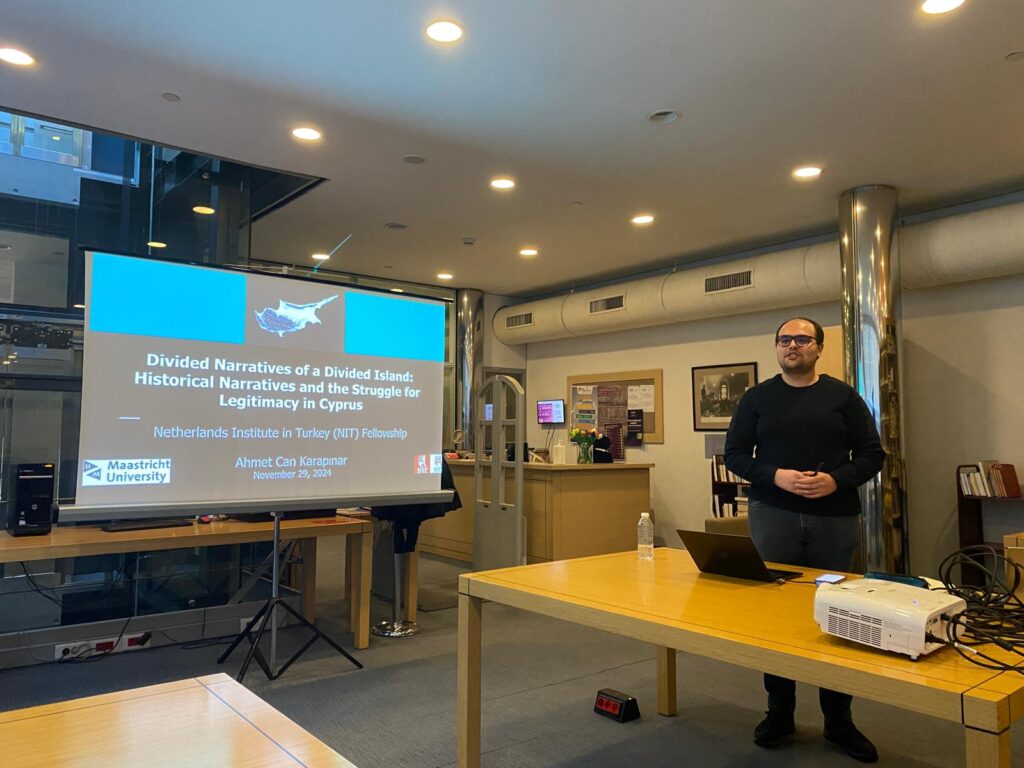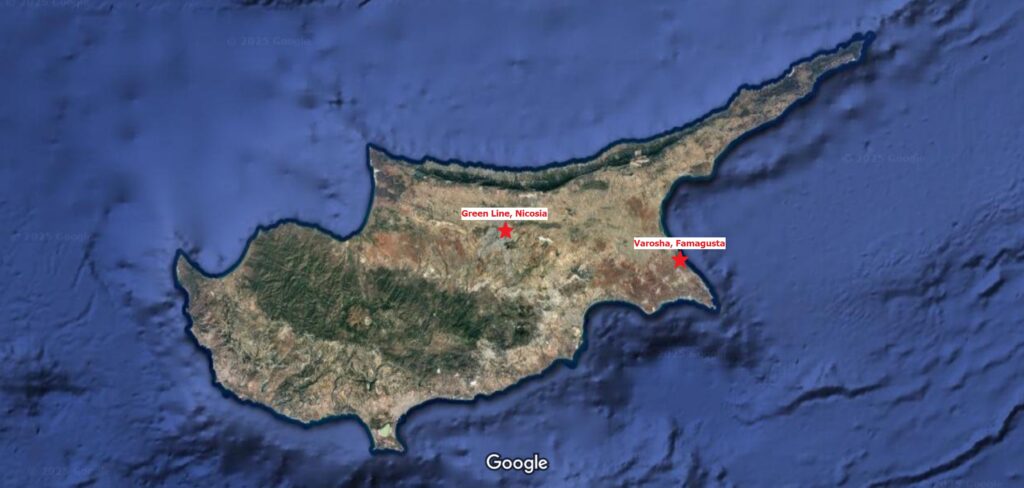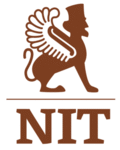by Ahmet Can Karapınar
This past December, I had the honor and privilege of doing research at the Netherlands Institute in Turkey (NIT) as one of the Autumn 2024 fellows. As a second year Research Master European Studies (RMES) student at the Maastricht University (The Netherlands), I am studying on the contemporary usage of history and collective memory as a foreign policy legitimization strategy in the Cyprus Question. During my fellowship at the NIT, I finalized my selection of primary sources and also progressed considerably with the literature review.

In late November, when I came to Istanbul to begin my fellowship, I was a little bit sad because of missing out on the beautiful Christmas markets of Northwestern Europe which were about to be opened up soon. What I did not know at that time was the fact that my fellowship experience would compensate for it by far. The warm atmosphere of the NIT library (both literally and figuratively) created the perfect environment for new ideas regarding my research trajectory to flourish. However, as much as I needed new ideas, something I needed even more was to come up with a solid research and writing plan. Hence, the presentation I gave to NIT staff and other fellows (also, let us not forget our three guests as well) at the end of my first week served that purpose quite well.
My beginning point, the research puzzle, is the following: Despite the end of the open conflict in the island in 1974, why does reconciliation remain as a bridge too far, and the division persist? After much research, thinking and regular meetings with my thesis supervisor Asst. Prof. Camilo Erlichman (Faculty of Arts and Social Sciences, Maastricht University), I managed to come up with a clear-cut research question stemming from that puzzle: To what extent do the Greek Cypriot, Turkish Cypriot, Greek, and Turkish leaderships mobilize the memory of the Cyprus conflict to legitimize their foreign policy? Since 2018, the Cyprus issue is escalating: The dispute concerning the Cypriot Exclusive Economic Zone (EEZ) in 2018–19, the unilateral opening up of Varosha for civilian use in 2020–21, the Pyla (Pile in Turkish) dispute on the Green Line in 2023, and finally in 2024, the 50th anniversary of the Greek Cypriot and Greek officers’ coup d’état in Nicosia for enosis (the unification of Cyprus with Greece) and the subsequent Turkish invasion.

All four parties extensively make references to history and mobilize the memory of the conflict as a foreign policy legitimization strategy. In light of the recent developments and this landmark anniversary, the role of history too is getting more prominent. I intend to shed light on the intricate relationship between the exacerbation of the dispute and the mobilization of history and collective memory. In that regard, the events of the last couple of years present a fertile research ground which has not been studied in-depth by state-of-the-art literature. To that end, I chose two case studies, namely the two contested public spaces in Cyprus: The dispute regarding the fenced-off town of Varosha (Maraş in Turkish) in Famagusta (Ammochostos in Greek, Gazimağusa in Turkish) and the Green Line in Nicosia (Lefkosia in Greek, Lefkoşa in Turkish). For data collection, document analysis has been employed for the relevant government documents of the Republic of Cyprus (RoC), self-proclaimed Turkish Republic of Northern Cyprus (TRNC), Hellenic Republic, and the Republic of Türkiye. I have just completed the research stage and started writing the actual thesis itself. So, it is very much a work in progress. In the end, I am hoping to make an insightful contribution to the historiography of the Cyprus Question and the wider European Studies.
While concluding my fellowship report, I also need to state that it was not only a matter of accessing the primary and the invaluable secondary sources of the NIT, Koç University Research Center for Anatolian Civilizations (ANAMED), Istanbul Research Institute (IAE), Economic Development Foundation (IKV), and Boğaziçi University (which I am an alumnus of) libraries. Socializing among the academic circles of Istanbul, like having a casual chat with Fokke and Aysel, proved to be invaluable. As much as it was academically rewarding, hearing the experiences of other researchers who had (and most of the time, still have) gone through similar challenges during their own research and writing processes surely had a huge positive impact on my personal stamina and confidence. Hartelijk dank voor alles! / Thank you very much for everything! / Her şey için çok teşekkür ederim!
